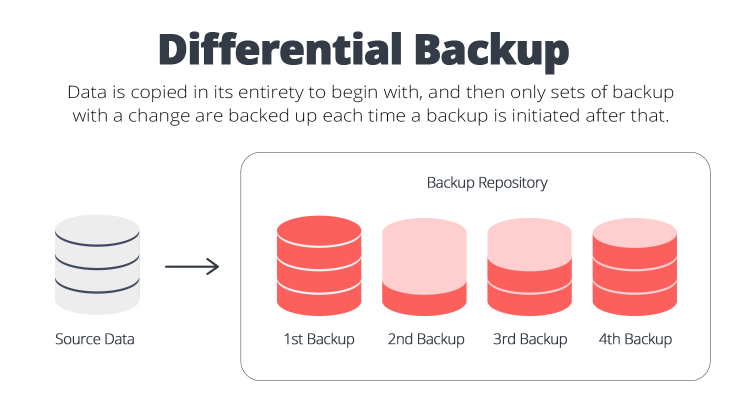Incremental Backup Differ from Full Backup and Differential Backup

Incremental backup, full backup, and differential backup are three distinct methods of backing up data, each with its own characteristics:
-
Full Backup:
- A full backup involves copying all the selected data from the source to the backup storage, regardless of whether the data has changed since the last backup.
- It creates a complete copy of all the data, providing a comprehensive snapshot of the system or files at a specific point in time.
- Full backups require more time and storage space compared to incremental or differential backups since they copy all data every time.
-
Incremental Backup:
- Incremental backup captures only the data that has changed since the last backup, whether it's newly created, modified, or deleted files.
- It offers faster backup times and requires less storage space than full backups because it only copies changes made since the last backup.
- The backup process involves taking a full backup initially, followed by subsequent incremental backups that only capture changes since the last backup.
- While incremental backups are efficient in terms of storage and time, the restore process can be more complex because it requires the full backup plus all incremental backups to fully restore the data.
-
Differential Backup:
- Differential backup also captures only the data that has changed since the last full backup, like incremental backup.
- However, unlike incremental backup, it doesn't consider changes since the last backup operation but since the last full backup.
- This means that each differential backup contains all changes made since the last full backup, making the backup set grow larger over time compared to incremental backups.
- The restore process for a differential backup is simpler than for incremental backups because only the full backup and the most recent differential backup are needed to restore the data.
In summary, while all three backup methods involve capturing data changes, they differ in terms of what data is backed up and how much storage space and time they require for both backup and restore operations.
Thank you,
